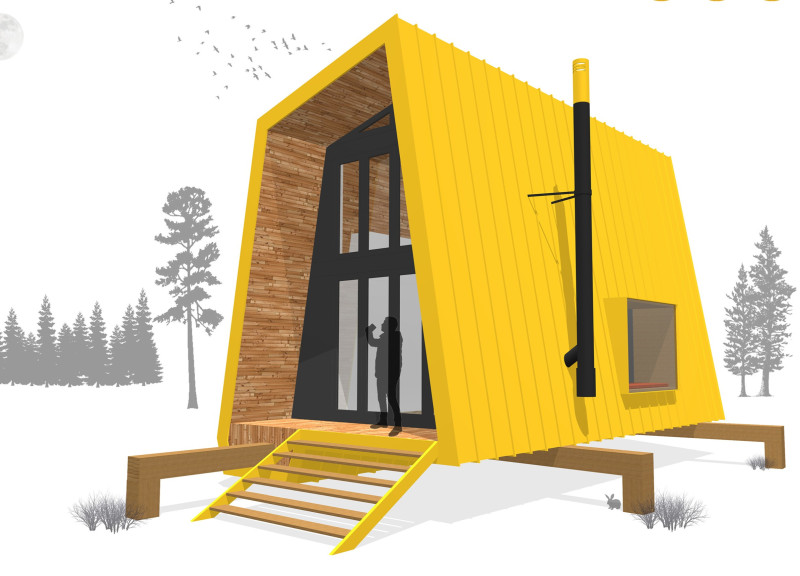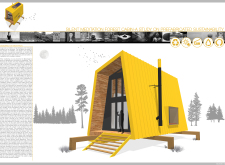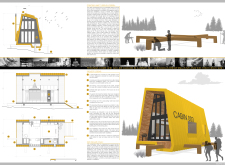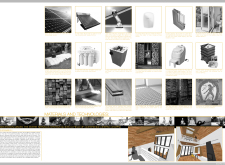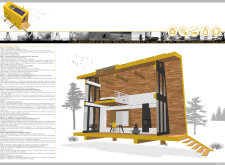5 key facts about this project
Cabin 003 is a space designed specifically for meditation, located in a peaceful forest setting. The design seeks to enhance the experience of meditation through careful planning and understanding of the needs of practitioners. It aims to separate spaces for sleeping and meditative practices, allowing for a focused environment that supports mindfulness and spiritual growth.
Spatial Organization
The layout of the cabin clearly distinguishes between areas for meditation and sleeping. This separation helps prevent the tendency to fall asleep during meditation, which can disrupt focus. The meditation room has high ceilings and large windows that allow plenty of natural light, providing a direct connection to the forest outside. This thoughtful arrangement enhances the feelings of calm and grounding that are essential for effective meditation.
Interior Design
The interior of the cabin follows a minimalist approach, reducing distractions that could interfere with mindfulness. Furniture is integrated into the space, with elements like a metal stove tucked into built-in features. This design helps maintain a clean aesthetic while ensuring comfort. Spaces for different activities—meditation, yoga, sleeping, showering, and dining—are defined, which helps users associate specific environments with their practices, reinforcing their routines.
Sustainability Features
Sustainability plays an important role in the design, with a focus on using local and reused materials to lessen environmental impact. Solar panels and a solar water heater are included to provide energy, while systems for greywater filtration and composting toilets support self-sufficient living. The cabin is elevated, and the outdoor decks extend into the forest, allowing for meditation in nature and enhancing the connection to the surrounding environment.
French doors from the meditation room and bedroom lead to expansive decks that overlook the forest. This integration of outdoor space encourages practitioners to engage fully with nature, providing a serene backdrop for meditation and reflection.


